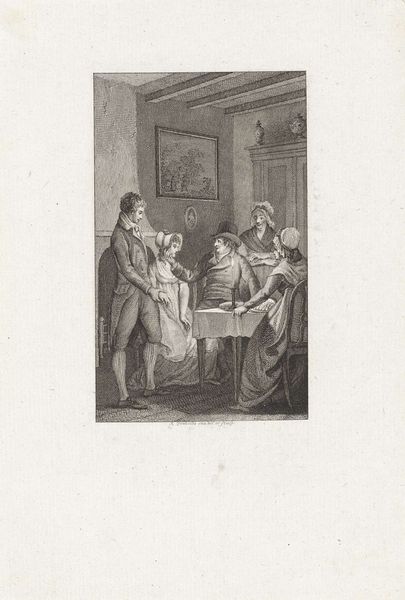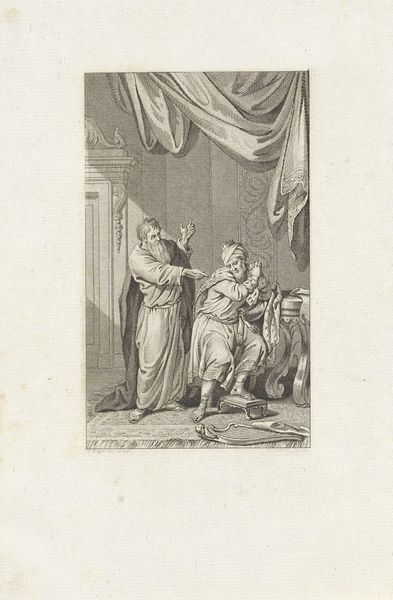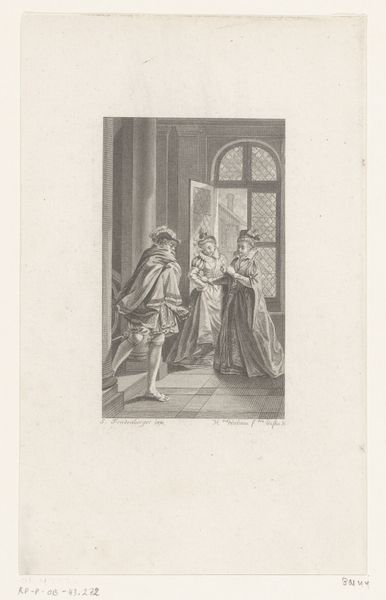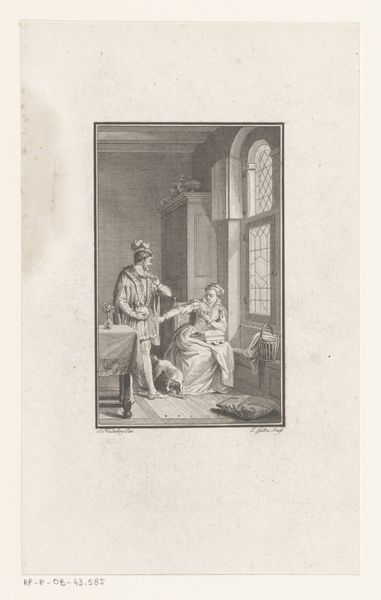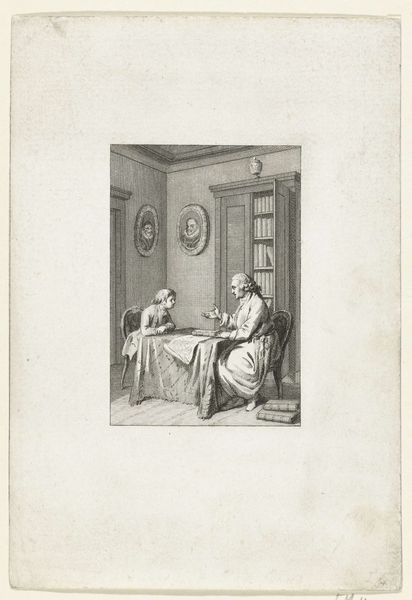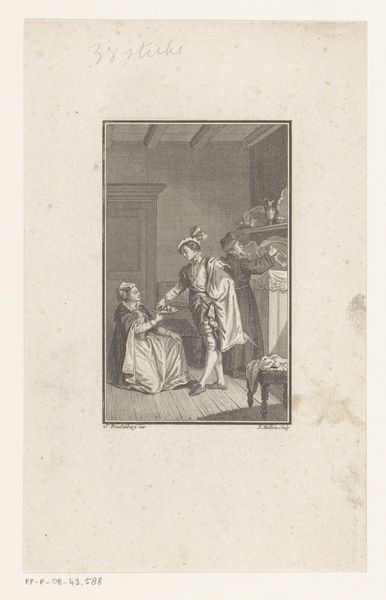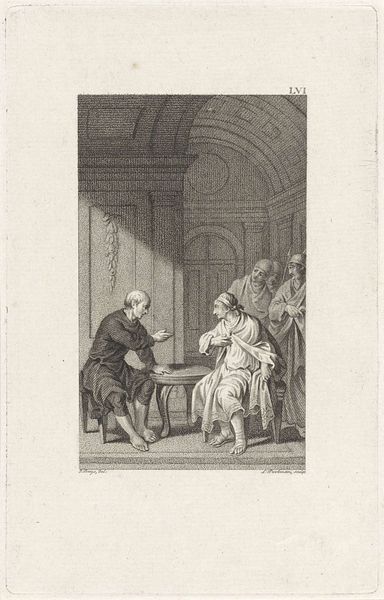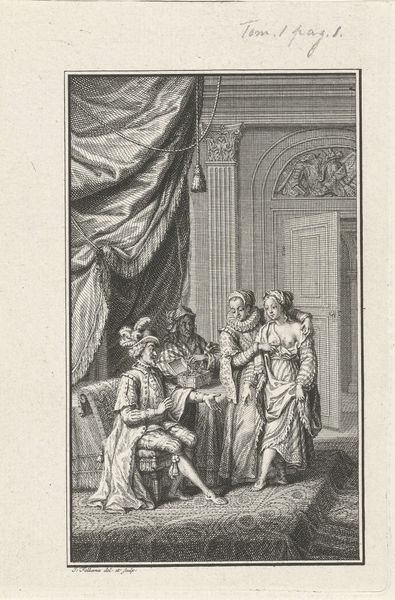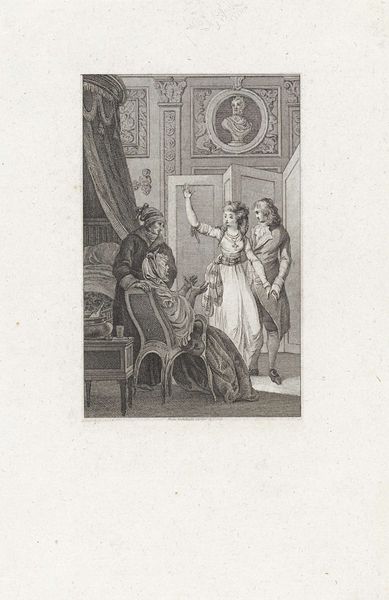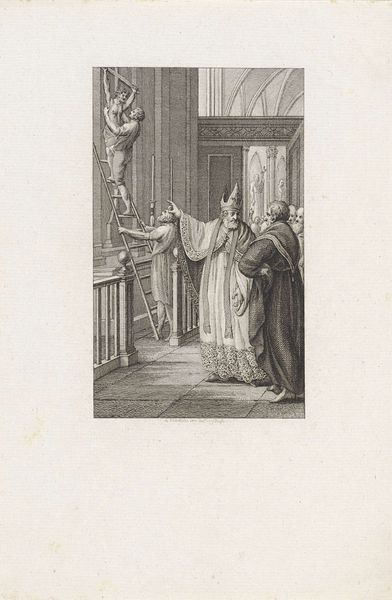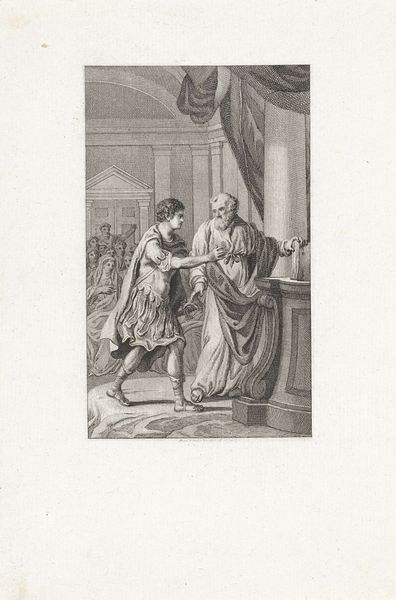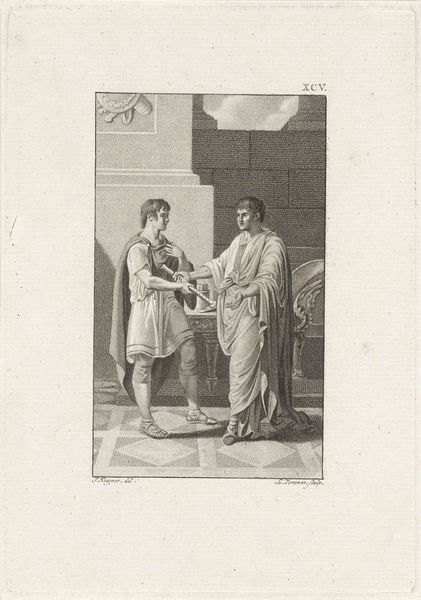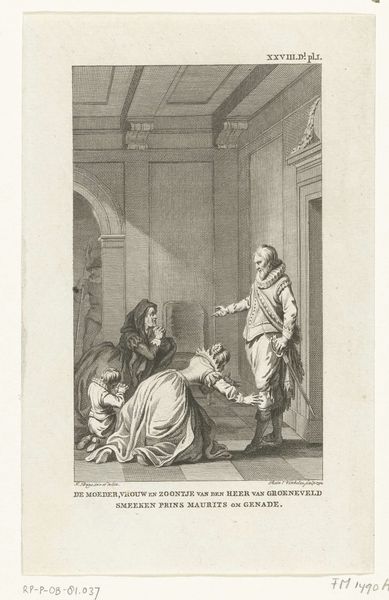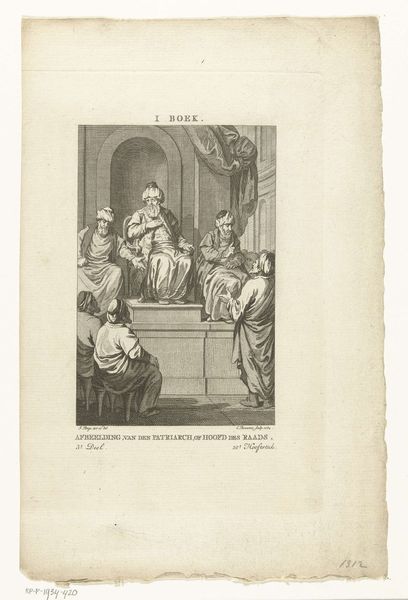
print, engraving
#
portrait
#
neoclacissism
# print
#
old engraving style
#
genre-painting
#
history-painting
#
engraving
Dimensions: height 115 mm, width 84 mm
Copyright: Rijks Museum: Open Domain
Editor: Here we have Philippus Velijn's "Dame maakt haar toilet," an engraving from 1819 at the Rijksmuseum. The detail achieved in the printmaking is remarkable. What catches your eye most about this scene? Curator: Considering the material realities, I'm drawn to how the print medium itself democratized images like these. Previously, such intimate glimpses into aristocratic life would've been exclusive to painted portraits commissioned by the wealthy. Here, engraving allows wider access, a commodity circulating within a burgeoning market of images. The labor involved in producing multiple impressions speaks to shifts in the social value and consumption of art. How do you see the depiction of luxury in this context? Editor: It’s interesting to think of the engraving process and distribution as integral to its meaning. So, the necklaces aren’t just beautiful objects, but signs of a very specific method of cultural production, almost like advertisements? Curator: Exactly. These details--the mirror, jewelry, and presumably imported fabrics—become objects of desire fueled by increased availability through printed images. We might consider this as an early form of consumer culture. And how the depiction and access influence shifting power dynamics of the era? Editor: That gives me a lot to think about regarding not just the subject matter but the materiality of the artwork and its role in broader social changes. Thanks! Curator: And I see the impact of accessible imagery redefining both production and reception of artistic pieces!
Comments
No comments
Be the first to comment and join the conversation on the ultimate creative platform.
